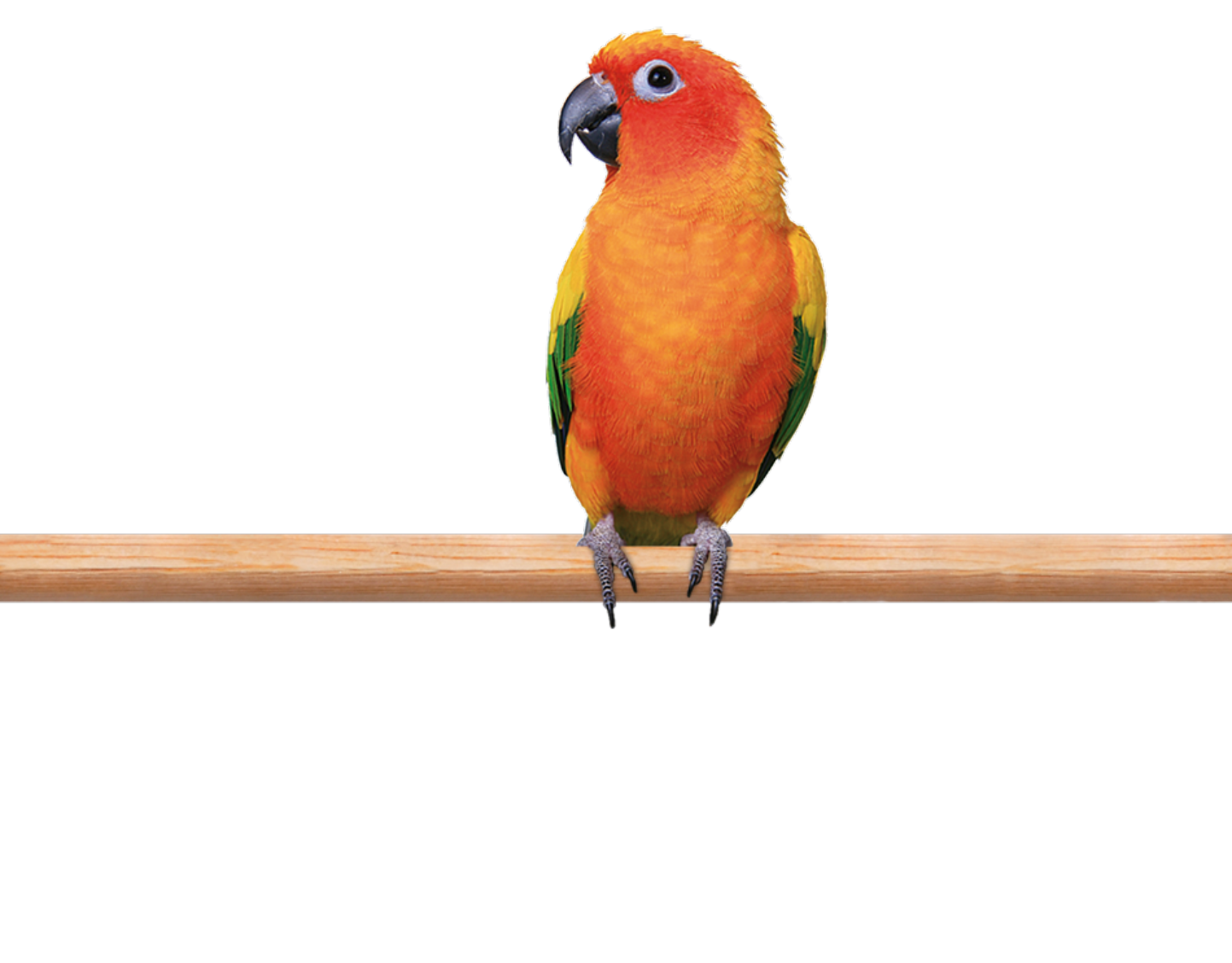Conure

Scientific Name: Aratinga and pyrrhura
Distribution: Central and South America, Western Hemisphere
Weight: 100-180 g
Size: 10 - 18 inches in length
Distinct Markings: Conures are small to medium sized parrots with long tapered tails. Many are brightly colored while others are predominately green. Their voices are often loud and harsh. The voices or Pyrrhura conures are not as loud, but they are less likely to be tame and personable. Conures are very hardy and adaptable.
Aratinga species can be endearing pets, playful and gregarious. Pyrrhura conures often do not remain tame and are better suited for aviary specimens. Conures are generally poor talkers. Enicognathus have especially endearing personalities but are uncommon in aviculture.
Routine bathing or showering is vital to maintaining good plumage and skin condition. Birds can be misted and allowed to dry in a warm room or in the sun, or dried with a blow drier. Conures are very efficient flyers and require more extensive wing clipping than more heavy-bodied birds. Clip only enough so the bird will glide to the floor.
DIET: Conures should be fed a formulated (pelleted or extruded diet) as a basis for good nutrition. The diet should be supplemented with fresh fruits and vegetables daily to add variety and psychological enrichment. Treats maybe given in small amounts especially as rewards for good behavior. Fresh clean water must be provided every day. Conure bleeding syndrome, vitamin K deficiency, may occur on an inadequate diet. Vitamin supplements are not needed for birds which are eating a formulated diet. Pretty Bird Daily Select or Breeder Select diets are well suited for conures.
